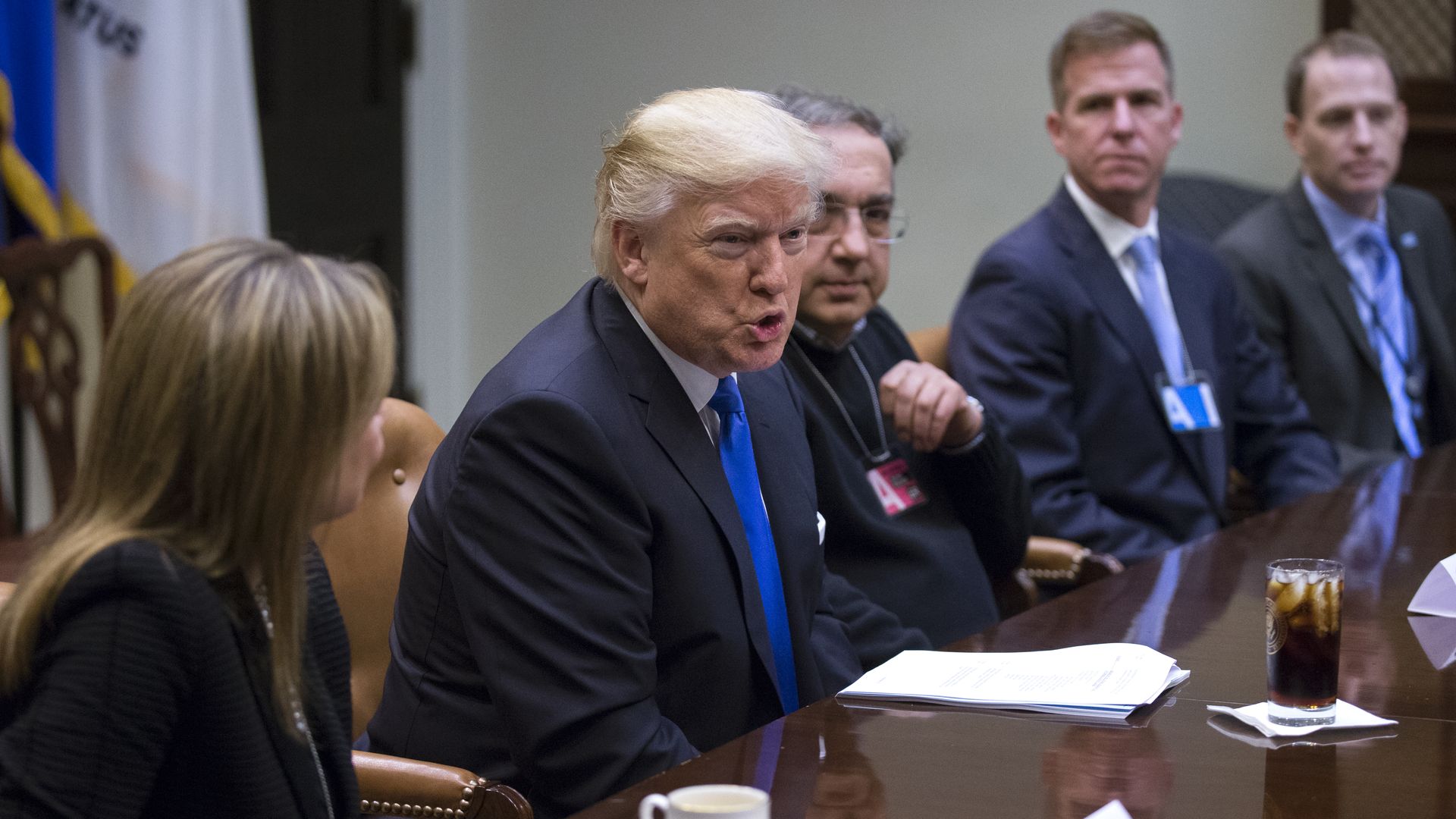Big Auto's rupture with Trump
Add Axios as your preferred source to
see more of our stories on Google.

Trump meeting with automaker executives in January 2017. Photo: Shawn Thew-Pool/Getty Images
Get ready for Mercedes-Benz to join the agreement between California and several big automakers to increase carbon emissions standards — a pact that rebuffs White House plans to freeze the Obama-era CO2 and mileage rules.
The intrigue: Per the Los Angeles Times late Tuesday, California Gov. Gavin Newsom confirmed anonymously sourced NYT reporting that Mercedes would join Ford, BMW, Honda and VW in the deal rolled out last month.
- Mercedes declined to comment yesterday.
Why it matters: It's a sign that the deal is expanding to cover a huge swath of the industry.
- NYT reports that another automaker — GM, Toyota or Fiat-Chrysler — intends to comply with the stricter rules for at least the next 4 years.
- Newsom also told reporters that discussions are underway with a 6th major automaker, per LAT.
Wednesday morning, President Trump tweeted:
"My proposal to the politically correct Automobile Companies would lower the average price of a car to consumers by more than $3000, while at the same time making the cars substantially safer. Engines would run smoother. Very little impact on the environment! Foolish executives!"
His response represents an escalation of the rupture between his administration and some of the world’s biggest automakers over his plan to freeze the Obama-era regulations rather than allowing them to grow stricter throughout the mid-2020s.
Quick take on Mercedes per Axios' Joann Muller: Mercedes' apparent decision makes sense because:
- Mercedes is part of the Daimler group, which has a joint venture with BMW combining their mobility services around electric vehicle charging, ride-hailing and more.
- The luxury automaker also has a number of EVs in its pipeline.
- That move toward EVs will enable a break with its past method of complying with mileage rules by purchasing credits, rather than making cleaner cars.
My thought bubble: The pact is the starkest example yet in a wider movement of states, companies and local governments rebuffing or counteracting the White House posture on global warming.
But, but, but: In this case, it's not black and white. Automakers initially backed the White House goal to revisit Obama-era mandates and only later chafed at plans to freeze annual increases next year.
- As one veteran advocate pointed out to me recently, the agreement with California is written in a way that's "significantly weaker" than the rules issued under former President Obama.
